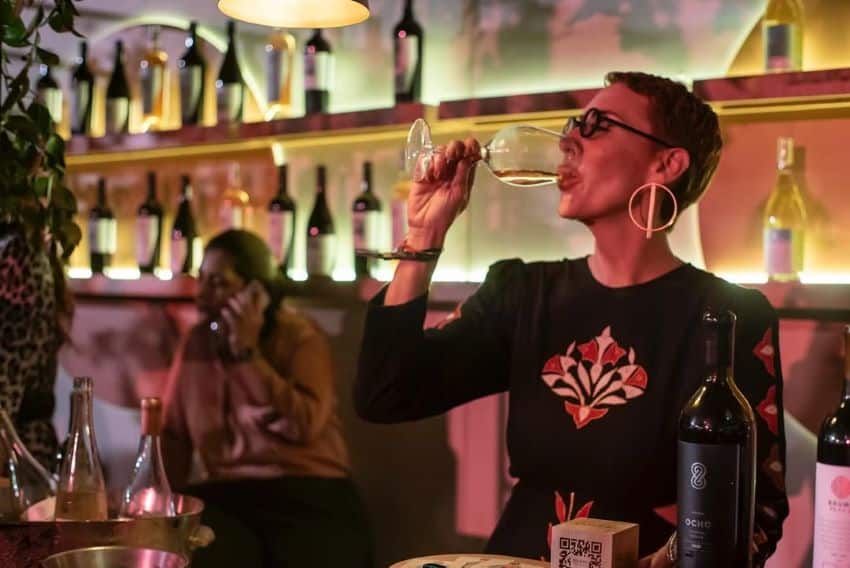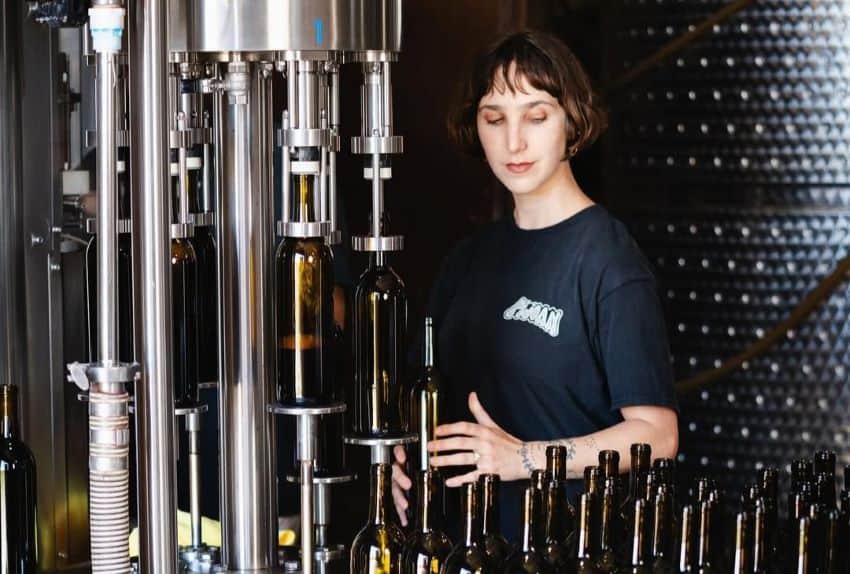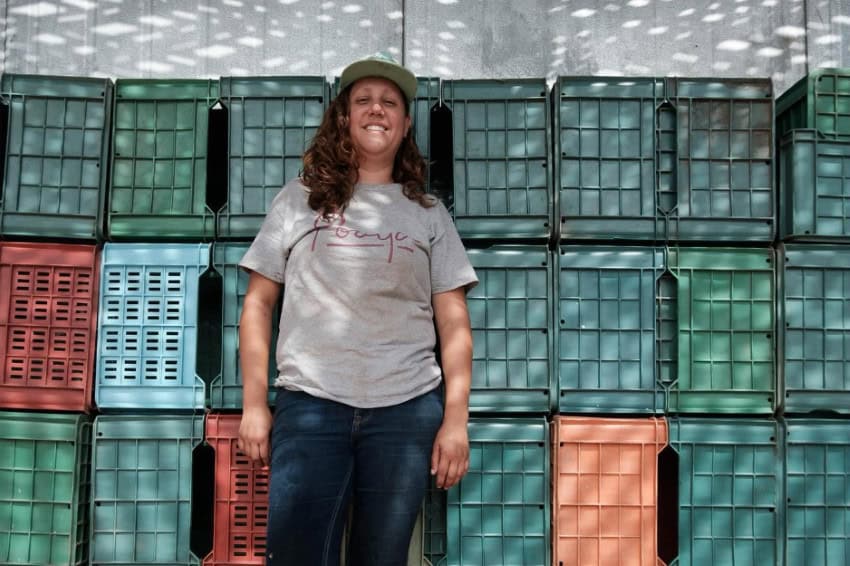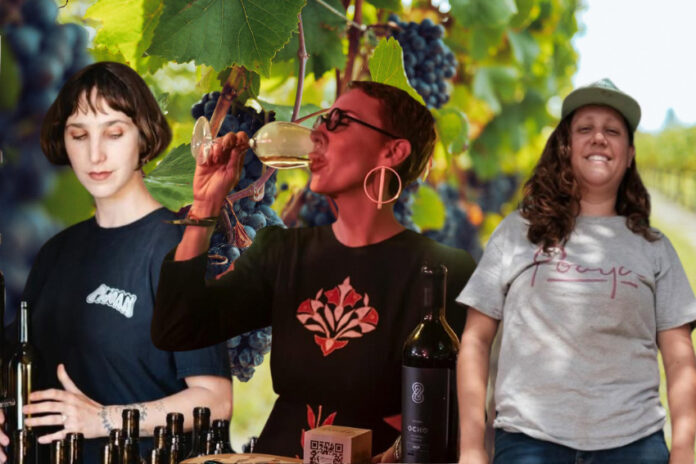Things are going well for women’s representation in Mexico recently, with the first female president, second female mayor of Mexico City and historic numbers of women all taking political office in the last months. And the trend isn’t limited to politics: traveling through Baja California, you’ll also notice that many of the top wineries are led by passionate female winemakers, who lead both the production process and the businesses themselves.
Following on from our previous instalment, here are some more revolutionary female winemakers forging their own success in Mexico’s premier wine country.
Lulu Martinez Ojeda: Inheriting tradition

Why exactly are there so many female winemakers in Baja California and what does it say about Mexico? A couple of the women I interviewed commented that many of the region’s founding fathers had daughters instead of sons, but that argument didn’t click for me: were women simply the default because there were no men around to take over? Adding to my skepticism was the fact that, in most cases, the daughters of these famous winemakers are not the ones currently running the wineries or the vineyards.
It wasn’t until I spoke with Lulu Martinez Ojeda, enologist at Bruma Winery, that another theory popped up. She explained that even though the Jesuits came to the peninsula in the 1600s, at the beginning of the 20th century, Baja was still a kind of Wild West.
Men would leave for days on end to work in other parts of Mexico and across the border in the U.S., and the women who were left behind had to farm and keep their families alive. These women, besides having to learn to fend for themselves, were often European immigrants fleeing tough political situations. Their distance from home and from the traditional expectations of their societies may have allowed them to shed old gender roles and create a new version of what it meant to be a woman in Baja.
Lulu compares her experiences in Mexico and France, where she worked for several years. “In Bordeaux it’s very traditional and very sexist. If a woman is in a chateau, then she’s probably human resources, or sales or marketing or the daughter of the owner, but she’s certainly not in production.” Coming back to Mexico, she expected more of the same.
“I remember the first time that a truck came with tempranillo grapes and the driver got out and was like, ’Where’s the boss!?’ I nervously say ‘I’m the boss’ and he’s like, ‘okay great, sign here.’ He couldn’t have cared less.”
Silvana Pijoan: A fresh new voice

“I think it’s still a pretty macho industry,” says Silvana Pijoan. “Maybe I just don’t care anymore, but I mean I don’t notice it anymore. And in my community, it’s not a thing I come across because we’re pretty supportive of each other.”
When Silvana started working with her father at Vinos Pijoan in 2016, it was mostly in the promotion side of the business, as she was still a professional dancer based in Mexico City. But she decided that her heart was in wine and came back to Baja to work full time at the vineyard. She started her own minimal intervention line in 2019, inspired by other women winemakers making natural wine, like Martha Stoumen in Mendocino. Her father, who had been making big, jammy, oaky wines for over two decades, pushed back.
But Silvana’s participation was vital to the vineyard which by that time had grown much larger than the capacity of a single person to run it. She and her father eventually settled into a strong working relationship, along with her two sisters who are also involved in the family business.
Fernanda Parra: The wily entrepreneur

Not every experience for these women has been rosy. Fernanda Parra from Pouya wines, the last of the Mexico’s female winemakers profiled here, remembers how it took two years for the male staff at Magoni vineyard, where she started her career, to get used to taking orders from her. But the very fact that she got her first job in the industry at one of the most well-respected wineries in Valle de Guadalupe says something about how women are viewed there. Now de la Parra is working on her own with her partner to make small-batch young, natural wines. Instead of the traditional big winery with lots of land, they buy from select local growers whose agricultural philosophies they respect.
Veronica Santiago: Continuing a feminist tradition

“Coming from a matriarchal family I learned so much from my mom, my grandmother, my aunts,” says Veronica Santiago of Viñedos Mina Penélope, “They taught me to work with assuredness and confidence in myself, and I think [right now Valle] is in an era of the new generation, the children of the pioneers of Valle. They have a different kind of education, a different way of interacting, it’s more inclusive and we are working really well together as a community. If you have a high level of professionalism you can gain the respect of your colleagues in the industry.”
Viñedos Mina Penélope is a small family project that Santiago’s mother started in 2006, when Santiago was in Australia getting her Oenology degree from the University of Adelaide. When she returned to Mexico she began to work alongside her mother in the vineyard. Modeling themselves after the small, family-focused projects of Old World countries like Spain and France, they only produce what they can with the grapes on their land (about 2,000 cases a year) and are doing it in a slow, sustainable way that includes measures to save water and regenerate their land. Santiago works alongside her U.S.-born husband Nathan Malagon who runs the agricultural side of things and they are raising their two sons on the vineyard.
“I’m the third of three sisters and when I had two boys I thought, ‘the universe is clearly trying to teach me something’. As a professional woman I have the opportunity to teach them how to be decent, how to interact with women, and be respectful. It’s our job to teach equity to the next generation.”
In the course of my work, I’ve spoken with many women over the years in male-dominated industries in Mexico. The overall sentiment I heard throughout these interviews in Valle de Guadalupe — that the women of the region have felt somewhat insulated from the sexism in the larger world of wine — is quite remarkable. It’s not that these women haven’t struggled, but they feel respected for their work and the creative freedom to make great wine in their own way. Whether it’s their pioneer heritage, their close-knit community or their unique perspective as women in business, a revolution led by women is happening in Valle de Guadalupe. Judging from the taste of it, it’s changing the face of Mexican wine for the better.
Lydia Carey is a freelance writer and translator based out of Mexico City. She has been published widely both online and in print, writing about Mexico for over a decade. She lives a double life as a local tour guide and is the author of “Mexico City Streets: La Roma.” Follow her urban adventures on Instagram and see more of her work at mexicocitystreets.com.
